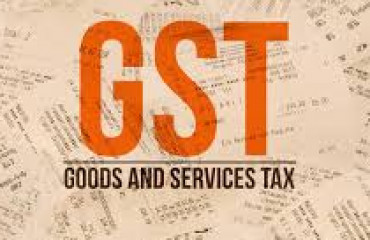
The Goods and Services Tax Council’s decision to levy tax on several exempted items and raise tax rates on others would drive up inflation and dampen household spending, economists said, besides prompting consumers to switch from unbranded to branded items. Moreover, the burden may fall more on the lower-middle-income class, as most of these items form a significant part of their consumption basket, they added.
BENGALURU/NEW DELHI : \
The Goods and Services Tax Council's decision to levy tax on several exempted items and raise tax rates on others would drive up inflation and dampen household spending, economists said, besides prompting consumers to switch from unbranded to branded items. Moreover, the burden may fall more on the lower-middle-income class, as most of these items form a significant part of their consumption basket, they added.
At its two-day meeting in Chandigarh, the GST Council decided to withdraw tax exemption for several unbranded and pre-packed food items, including farm and dairy products. Packed foods like milk, curd, and items like dried leguminous vegetables and makhana, wheat or meslin flour, jaggery, puffed rice, organic food, manure and compost will now face a 5% GST rate. It also imposed an 18% GST on fees charged by banks for issuing cheques and a tax of 12% on hotel rooms costing less than ₹1,000 per day, which currently falls under the exempted category. The changes take effect on 18 July.
"Any rate rationalization to boost state revenues at the brink of the end of the GST compensation era triggers fears of higher prices, at a time when high inflation already poses a concern," said Aditi Nayar, chief economist at ICRA Ltd. Moreover, she added that the move may shift consumer preferences towards branded items and level the playing field between branded and unbranded items.
Devendra Kumar Pant, chief economist at India Ratings and Research, agreed that household inflation would continue to be under stress due to the rate revisions. However, he pointed out that it will be difficult to quantify the impact on the consumer price index as some of these items, such as electric vehicles, are not in the existing CPI basket, which dates back to 2011-12. The Council decided that electric vehicles, whether or not fitted with a battery, will be eligible for a 5% concessional GST rate.
"Hotel for lodging has 0.00904% weight in CPI basket. Even if all hotels fall under ₹1,000 per day, a 12% increase in GST will translate into a 0.11 basis points increase. Similarly, assuming all electric bulbs and tube lights are LED bulbs and tube lights, impact on inflation will be 0.97bps, the same for curd will be 0.47bps," said Pant of India Ratings.
The Council also decided to impose a 5% GST on hospital room rent (excluding ICU) exceeding ₹5,000 per day per patient without input tax credit (ITC).
N.R. Bhanumurthy, the vice-chancellor of BASE University, said the impact would not be uniform. While the first round of impact will be inflationary and disrupt household budgets for the lower middle class, the second round will be positive, with the government having higher revenues that could be used towards capital expenditure and social security.
"The hike in GST rates will have some impact on the wholesale price index as they go into production. But it will depend on how companies transmit the hike in wholesale prices to retail prices. There are some commodities which are part of the consumption basket. Those will quickly transmit to consumer price index inflation and disrupt household budgets and have some impact on consumption," said Bhanumurthy. He added that it was also to be seen if service providers are going to pass on the GST rate increase or absorb it.
Services like job work in some sectors have seen a tax increase from 5% to 12%, while work contracts for infra sectors will see a hike from 12% to 18%. LED lamps will see the GST rate go up from 12% to 18% and that for solar water heating systems from 5% to 12%.
Pronab Sen, a former chief statistician of India, said the changes would have two effects. "If the tax rate goes up, the price will go up. In a non-inflationary world, it wouldn't matter as it is a one-step change. In an inflationary situation, it can lead to further inflation as relative prices get changed. However, there is a second dimension. With the tax rate increase, the purchasing power of people may go down, which is contractionary. Now, which of the two effects will dominate is difficult to say," said Sen, the current programme director of International Growth Centre, India. He added that doing away with exemptions may help correct duty inversions as even in the case of non-branded food items, some inputs attracted GST, for which input tax credit couldn't be availed as the finished product was exempted. "This should help even out the price change," said Sen.
Consumer price index-based inflation is hovering at record high levels of over 7%, with most items reporting double-digit inflation. As a result, the central bank's monetary policy committee has hiked the repo rate by 90 basis points in two straight months to control inflation.
